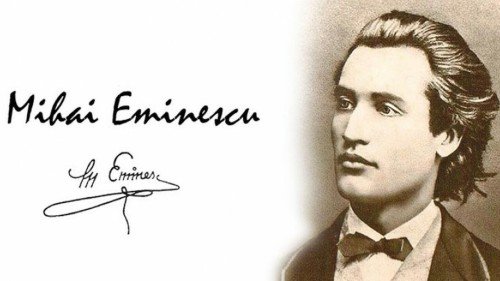
Mihai Eminescu, born on January 15, 1850, is one of the most important poets in Romanian literature. His works have had a profound impact on Romanian culture, and his legacy continues to inspire generations of writers and artists.
Eminescu was born in Botosani, a town in northern Moldavia, which was then part of the Austrian Empire. He received his education in his hometown and later studied philosophy, literature, and law at the University of Vienna. His passion for literature began at an early age, and he started writing poetry when he was only sixteen years old.
Eminescu's literary career started in 1870 when he became an editor of a literary magazine. He soon gained recognition as a talented poet and became one of the leading figures of the Romanian literary scene. His poetry was characterized by a profound sense of melancholy and a longing for the ideal, which reflected his personal struggles and the political and social turmoil of his time.
Some of Eminescu's most famous works include "Luceafarul" (The Evening Star), "Dorinta" (Desire), and "Mai am un singur dor" (I Have One Last Wish). His poetry often dealt with themes of love, nature, and spirituality, and he was known for his innovative use of language and his ability to evoke powerful emotions in his readers.
Mihai Eminescu is best known for his poetry, which is considered to be some of the most significant in Romanian literature. Here are some of his most famous works:
-
"Luceafarul" (The Evening Star) - This is perhaps Eminescu's most famous poem, a long and complex work that tells the story of a prince who falls in love with a star.
"Luceafarul" is one of Mihai Eminescu's most famous and acclaimed works. It is a long and complex poem that tells the story of a prince who falls in love with a star. The poem is considered a masterpiece of Romanian literature and is admired for its beauty, depth, and complexity.
One of the most striking things about "Luceafarul" is the way in which Eminescu uses language to create a vivid and powerful picture of the world he is describing. The poem is filled with rich and evocative imagery, which helps to transport the reader to the magical world of the story. Eminescu's use of metaphor and symbolism is particularly impressive, as he manages to convey complex ideas and emotions through the use of simple and elegant language.
Another notable aspect of "Luceafarul" is its exploration of themes such as love, desire, and the search for meaning and fulfillment. The story of the prince and the star is a powerful allegory for the human experience, and Eminescu's exploration of these themes is both thought-provoking and moving.
Overall, "Luceafarul" is a truly remarkable work of poetry that continues to inspire and captivate readers to this day. Eminescu's masterful use of language and his exploration of complex themes make this poem a true masterpiece of Romanian literature, and a testament to the power of poetry to move and inspire.
-
"Dorinta" (Desire) - A short, intense poem about the longing for something unattainable.
-
"Mai am un singur dor" (I Have One Last Wish) - A powerful and emotional poem about the desire to be reunited with a loved one who has passed away.
-
"Scrisoarea III" (Letter III) - This is a famous love poem, written in the form of a letter, that explores the themes of love, loss, and longing.
-
"Ce-ţi doresc eu ţie, dulce Românie" (What I Wish for You, Sweet Romania) - A patriotic poem in which Eminescu expresses his love and hope for his homeland.
These are just a few examples of Eminescu's many works, which have had a profound impact on Romanian culture and continue to be celebrated to this day.
Eminescu's life was marked by personal tragedy and illness. He suffered from a chronic illness, and his mental health deteriorated in his later years. He died on June 15, 1889, at the age of thirty-nine, leaving behind a legacy that has inspired generations of Romanian writers and artists.
Today, Eminescu is considered one of the greatest poets in Romanian literature and is revered as a national hero. His works continue to be studied and celebrated in Romania and around the world, and his influence can be seen in the works of many contemporary writers and artists. Eminescu's poetry remains a testament to the power of art to transcend time and language, and to inspire generations to come.








